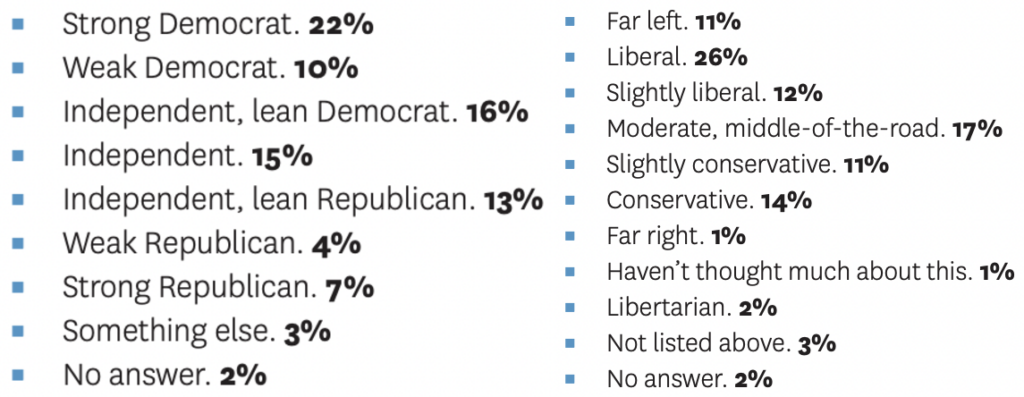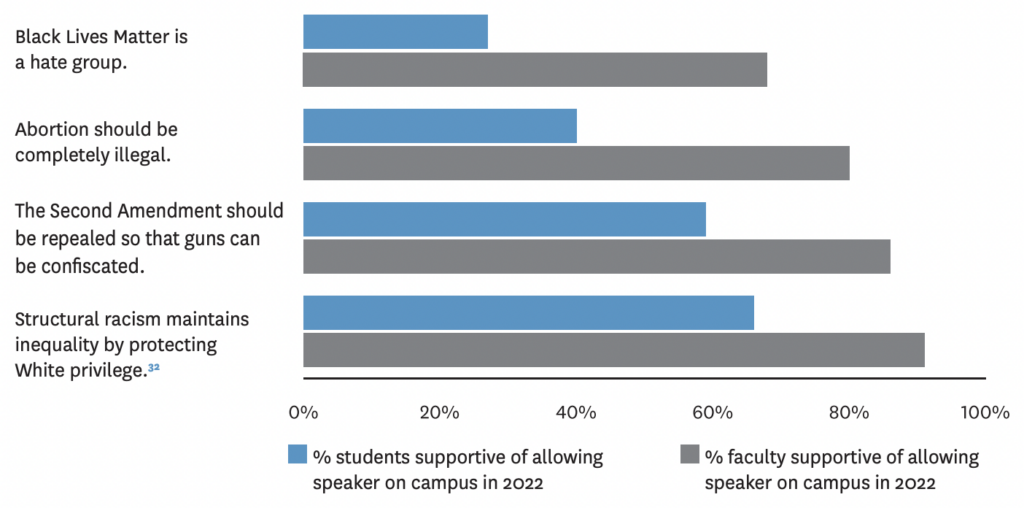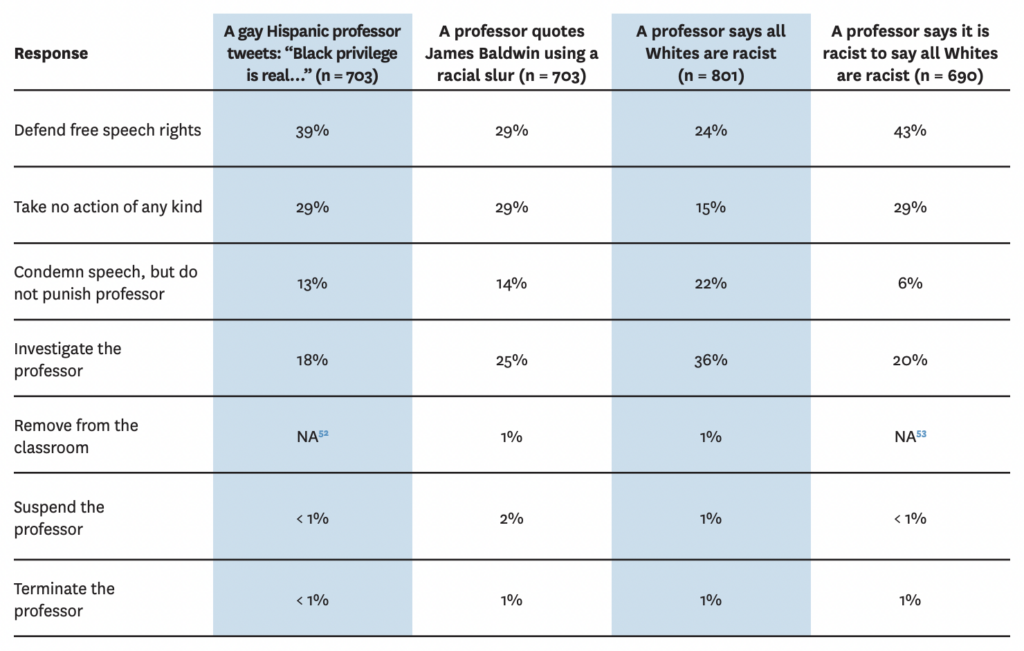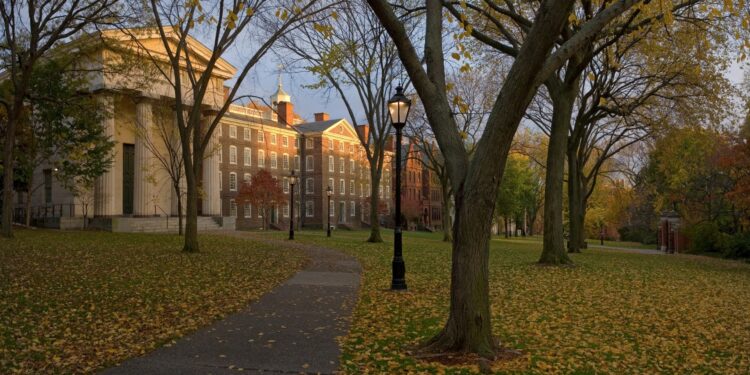Who’s more hostile to free speech and academic freedom: faculty or students? According to a new survey of U.S. college faculty, it’s the latter – by a long way. On the other hand, being less hostile to free speech and academic freedom than your typical college student isn’t exactly hard. And the survey also found “serious cause for concern”. Let’s dig in.
Around 1,500 U.S. college faculty took part in the survey, which was fielded in the summer of last year. Respondents were invited to take part via email; they then answered questions on Zoom. Data were weighted to improve representativeness.
Democrats and liberals were overrepresented in the sample, but by less than you often find among college faculty. As shown below, 32% of respondents were Democrat versus 11% who were Republican. And 49% were liberal or far-left versus 26% who were conservative or far-right. (Another 2% were libertarian).

To compare faculty and students, the researchers – Nathan Honeycutt and colleagues – asked several questions that had been asked in a previous survey of U.S. college students. In particular, they asked respondents whether they would support or oppose allowing each of several ‘controversial’ speakers on campus. Results are shown below.

In all four cases, at least 60% of faculty were in favour of allowing the speaker on campus. And in each case, the percentage of students in favour was at least 20 points lower. (Personally, I wouldn’t say any of these hypothetical speakers sounds particularly controversial.)
Honeycutt and colleagues also asked respondents whether it is never acceptable to deplatform a speaker using various illiberal tactics, and once again found that faculty were more likely to agree than students (though the differences were somewhat smaller).
On the other hand, when they disaggregated the faculty results by age, they found that younger academics were less likely to agree. For example, less than 80% of those under 35 said it is never acceptable to deplatform a speaker using violence, compared to more than 90% of those over 55. This suggests the academy is becoming less supportive of free speech over time.
What’s more, a sizeable minority of faculty support various kinds of sanctions against those who make ‘controversial’ remarks. Results are shown below.

Between 18% and 36% of respondents said the hypothetical professor should be investigated. More encouragingly, less than 1% said he/she should be suspended or terminated – though this may be because the examples weren’t particularly controversial.
Consistent with previous work, the researchers found that large percentages of non-leftist faculty self-censor. When asked about “official meetings or offices of administrators, faculty or student groups”, more than 60% of conservative academics said they were “very or extremely likely” to do so.
Honeycutt and colleagues’ survey is more encouraging than some previous surveys regarding support for free speech and academic freedom among academics. Yet this may be due to the unusually large number of non-leftists in the sample. Had the sample been more representative, levels of support would have been correspondingly lower.











To join in with the discussion please make a donation to The Daily Sceptic.
Profanity and abuse will be removed and may lead to a permanent ban.
I have this theory that students fall largely into two groups – those who study subjects that are based on incontrovertible facts – broadly science, engineering and mathematics, and those who don’t – social “sciences”, psychology, arts and media, environment.
Guess which group I think are more likely to be hostile to free speech and prefer to promote alternative “truths”.
Rule-Following People
(Culture of Faith)
vs
Thinking People
(Culture of Doubt)
“Had the sample been more representative, levels of support would have been correspondingly lower.” But nowhere in the article could I find any evidence that the sample was not representative ie that it was biased in favour of less left wing views. This is interesting as elsewhere I have seen claims that fewer than 5% of academics are now conservative.